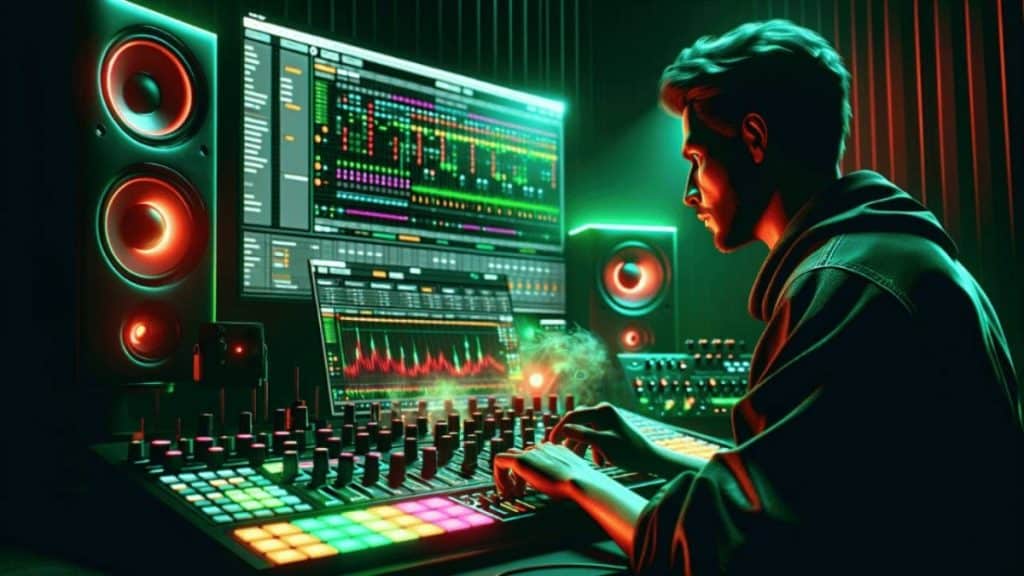Planning an event is complex, and ensuring the right equipment is challenging. All events need quality audio plays, such as speaker hires, to engage the audience.
Speaker hire fulfills the needs dynamically because it ensures the availability of a complete sound system and quality speakers. Managing the event in such a way enables you to meet the needs of your event.
This article discusses speaker hire in detail. We will discuss the right methods of speaker hire and important factors for selecting the right sound system or booking suitable speakers for your event.
The information will help you to maximise the output of your investments. By the end of this article, you can make your event well-equipped while meeting essential requirements.
Understanding Speaker Hire
There are two primary components of a speaker, which are:
- Sound System Rental: The size of the venue is very important to consider when you rent a sound system. You should also consider the number of attendees and the nature of your event. Ensure the availability of speakers, amplifiers, microphones and mixers in the sound system.
- Identify the type of sound system: Some speakers have specific strengths and weaknesses. Read the features of speakers before hiring them. Choose a speaker that aligns with your event’s goals and audience expectations.
- Check pricing: Different speakers have different prices, depending on their features. You can spend a reasonable amount on speaker hire without disturbing your budget. Knowing the nature of your event’s better selection will help avoid overspending.
- Innovative enough to engage the audience: Look for a speaker hire equipped with advanced features so you can adjust them according to the theme of your event.
Ensure everyone hears
Select the sound system that ensures everyone in the event hears the sound. Your audience’s audio experience has a strong relationship with the success of your event. Choosing the right type of equipment enables you to ensure that the sound reaches everyone. Let us demystify the method of selecting the right equipment for your event. We will discuss the uses of some different kinds of speakers that will help you pick the one that meets the needs of your event.
Public address speakers
Public address speakers are specially designed to address public meetings and large crowds. These are available in small portable units and also in extensive set ups. These are preferable for business meetings, conferences and seminars.
Furthermore, these speakers are also used in schools, churches and community halls. These are lightweight and easy to set up, making them perfect for mobile events.
Line array speakers
Line array speakers represent the impression of beauty and the beast; placing loudspeakers in a row ensures proper sound propagation. At the same time, such a set up and positioning of speakers looks impressive.
Furthermore, these consist of multiple units and are commonly used for large-scale events like sports festivals. These are specially designed for better sound control on high and low-frequency. However, these are complex to set up and require professionals to handle.
Subwoofers
Subwoofers produce bass and are especially designed for the events that need sound effects. These are essential equipment for DJs to set the event’s mood. These produce an impactful audio experience, ensuring the bass remains strong and full. These speakers are also used in theatrical performances because of their ability to create powerful bass.
You can also pair subwoofers with other speakers to create a balanced sound system. These speakers require proper placement to avoid distortion.
Monitor speakers
Monitor speakers are also referred to as stage monitors because these are placed on the stage to assist performers. It helps them to ensure that their audience is hearing the sound. These speakers are also used to deliver some specific mix such as vocal instruments or background track, depending on the performer’s preference.
Choose a reputable company
To ensure the success of your event and avoid disruptions, it is crucial to choose a reputable company for speaker hire. Read reviews and testimonials to get a better idea of past customers’ experiences.
Furthermore, you will have a better idea about the equipment quality on which the reputation of your event matters. Check out the service packages, availability of skilled professionals, technical support and pricing. Consider all factors before choosing a company for speaker hire.
Test the equipment beforehand
Check the quality of equipment before hiring to ensure everything works properly during the event. In this time of checking, you can adjust the settings of the equipment according to your event’s requirements. At the same time, you understand the functioning of an equipment.
Consider additional audio equipment
Some events require more than just speakers. If you are arranging those, then get some additional equipment. For controlling audio levels you need mixing consoles to maintain a balance among multiple sound sources. Check wires and wireless options if you need to communicate with your audience. To boost the power of the sound system, you need amplifiers, especially in large venues. Most importantly, check the availability of stands and cables to ensure smoother connectivity among all equipment.
Some common mistakes to avoid
Organisers repeatedly make common mistakes when they get speaker-hire services. Those are:
- Underestimating venue size and ignoring to ensure speaker power according to the space requirement.
- Not checking sound quality can lead to technical issues during the event.
- Not describing requirements correctly to the speaker hire company.
- Not preparing yourself with a backup plan can ruin the joy of your event.
Conclusion
Speaker hire ensures your audience gets the best sound experience in the event. Choose the right equipment, considering the need and size of your event. Furthermore, read about the service provider and ask about their equipment quality before hiring the services. Hire the best team of professionals and ask about their support team to avoid mishaps during the event.
